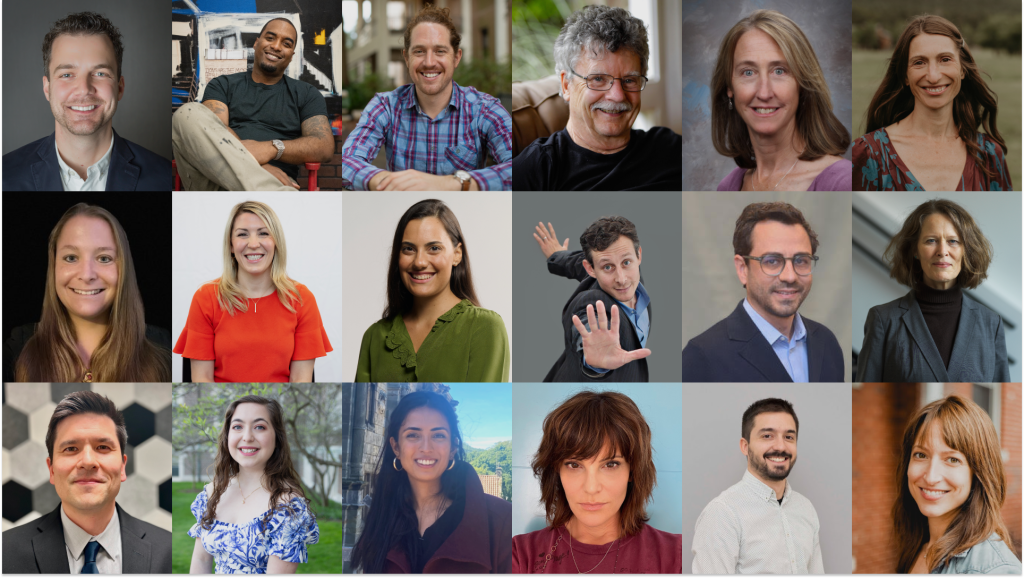
The second annual Renée Fleming Neuroarts Investigator Awards, established by the Renée Fleming Foundation and administered through the NeuroArts Blueprint Initiative, will support nine teams of early-career investigators working across sciences and the arts to advance the emerging field of neuroarts. Neuroarts is an interdisciplinary field, rooted in the science of neuroaesthetics, which explores how the arts and aesthetic experiences change the brain, body, and behavior and how this knowledge can be applied to advance health and wellbeing.
The purpose of the program is three-fold, with each goal critical for building the field of neuroarts:
- Provide seed funding for early career researchers and arts practitioners to collaborate on innovative neuroarts research.
- Identify and fill key gaps in neuroarts research.
- Develop and support a new generation of neuroarts professionals.
Each Award is presented to an interdisciplinary team of researchers, consisting of an early-career researcher who is affiliated with an academic institution and engaged in a field of basic science related to neuroarts and an arts practitioner working in an arts-based neuroarts discipline.
Learn more about the nine 2025 Renée Fleming Neuroarts Investigator Award recipient teams and their projects:
Creating Connection: A Neuroarts Approach to Youth Healing and Expression
Stephen DiDonato and Raheem “King Saladeen” Johnson
Thomas Jefferson University
What if a collective arts project can influence youth perceptions of feeling more self-aware, socially connected, and empowered? This innovative project aims to understand how youth engagement in a trauma-informed collective arts project can enhance self-awareness, connection, and empowerment, enhancing the neuroarts field through the development of a trauma-informed collective arts project that is co-created with youth and inclusive of their perspectives on how collective arts can support youth social and emotional well-being.
Youth perspectives on the trauma-informed collective arts project will be explored through post-project focus groups. Youth voices will be captured to understand their acceptability of the process and modifications for expansion. We expect that youth engagement in the trauma-informed collective arts project will enhance their overall social and emotional well-being, specifically their own self-awareness, connection, and empowerment. The project will develop infrastructure for more complex environments in the future, and expansion could also include entrepreneurial opportunities.
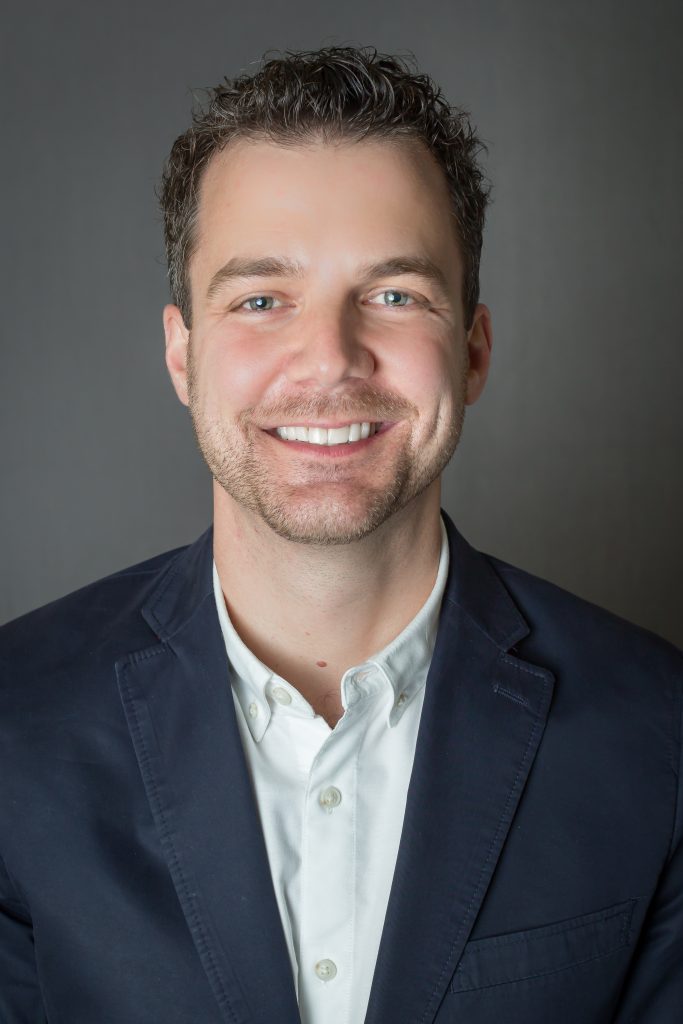
Stephen DiDonato
Stephen DiDonato, PhD, LPC, NC, Associate Professor in the Jefferson College of Nursing (JCN), is a psychologist and a licensed professional counselor, educator and researcher.
Dr. DiDonato’s clinical focus is on children and families who have experienced trauma and social injustice. His research focuses on the development of trauma-informed organizations and programming. Over the past decade, he has developed university-community research partnerships that span reimagining foster care systems and youth leadership.
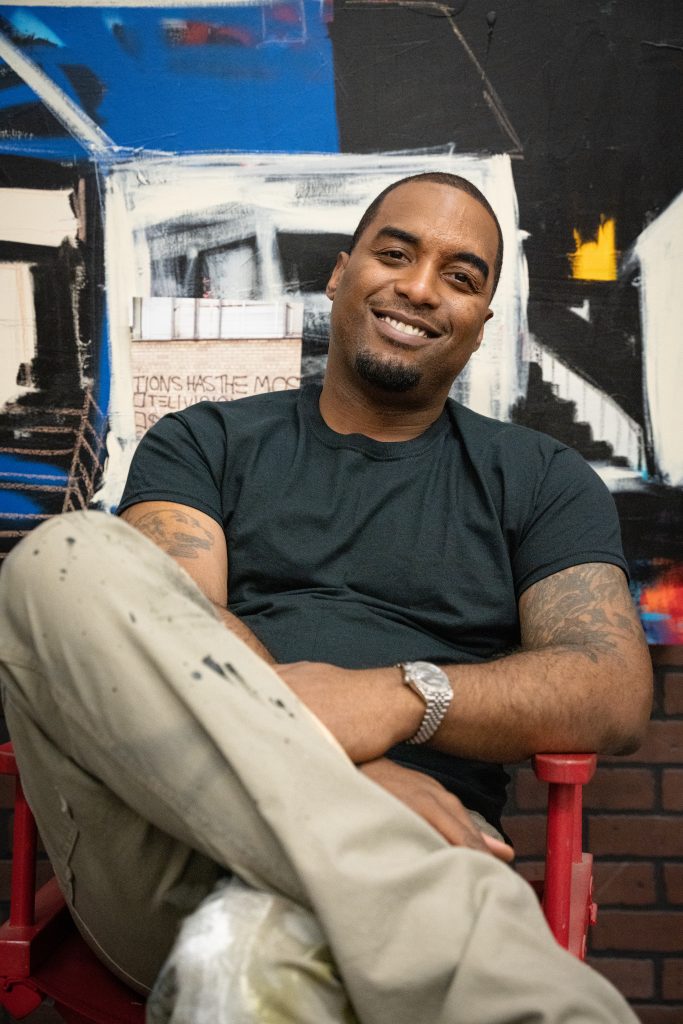
Raheem “King Saladeen” Johnson
Raheem “King Saladeen” Johnson is an accomplished artist from West Philadelphia specializing in pop art mixed with graffiti. King Saladeen is a member of The Compound Collective, a collaborative community of artists based at The Compound Art & Sound Gallery.
His solo shows include Art Basel, and commercial ventures such as the NFL and NBA, luxury automotive commissions, and displays with brands like Neiman Marcus. From Jordan collaborations to airport murals, he is a recognizable talent who works to inspire the next generation to “take a chance and go after their dreams.”
Investigating Flow States During Painting for Older Adults: Personality, Motivation, and Cognitive Predictors
Denis Dumas and Stewart Cubley
University of Georgia Research FoundationDuring a flow state, individuals become pleasurably lost in an activity. They do not sense time passing, are not self-conscious, and upon emerging from flow, are often highly intrinsically motivated to repeat the activity. In this study, we plan to utilize an experience sampling methodology to understand when and how older adults enter flow states during a weeklong painting workshop. The workshop, hosted by the nonprofit Institute for Art and Living—which has 40 years of experience hosting such workshops around the world—will utilize a process arts curriculum, focusing on the artist’s subjective experience of their process, rather than their end-product. The research team will be embedded in the workshop, collecting psychological data at approximately 25 timepoints. The resulting data will be modeled using machine learning techniques, with the goal of creating novel and impactful inferences about how to best support older adults in entering flow states.
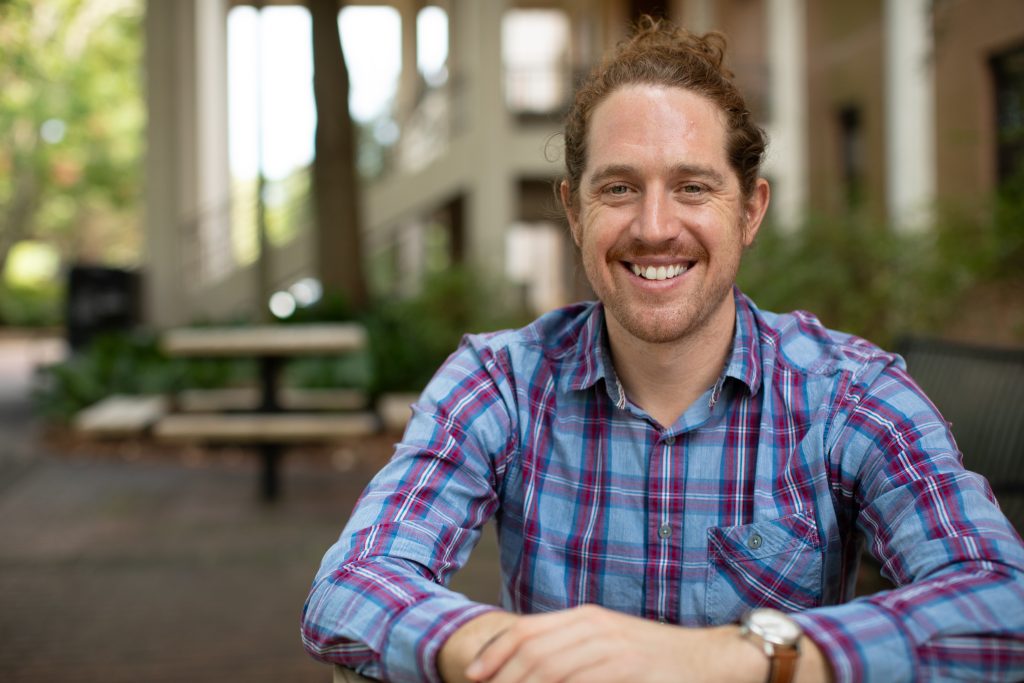
Denis Dumas
Denis Dumas, PhD is Associate Professor of Educational Psychology at the University of Georgia, situated within the program for Gifted and Creative Education as well as the Quantitative Methodology program.
He holds a PhD in Human Development and an MA in Educational Measurement and Statistics from the University of Maryland, College Park. In his work, Denis strives to better understand human learning and creativity by applying innovative statistical techniques to psychological data. He has published almost 100 peer-reviewed papers and won early career research awards from the Society for the Psychology of Aesthetics, Creativity, and the Arts, and from the Society for the Neuroscience of Creativity. He has been previously funded by the Institute of Education Sciences, the Naval Research Laboratory, and the National Academy of Education. Denis is honored to be funded by the NeuroArts Blueprint Initiative, and to collaborate with the excellent arts educators at The Painting Experience.
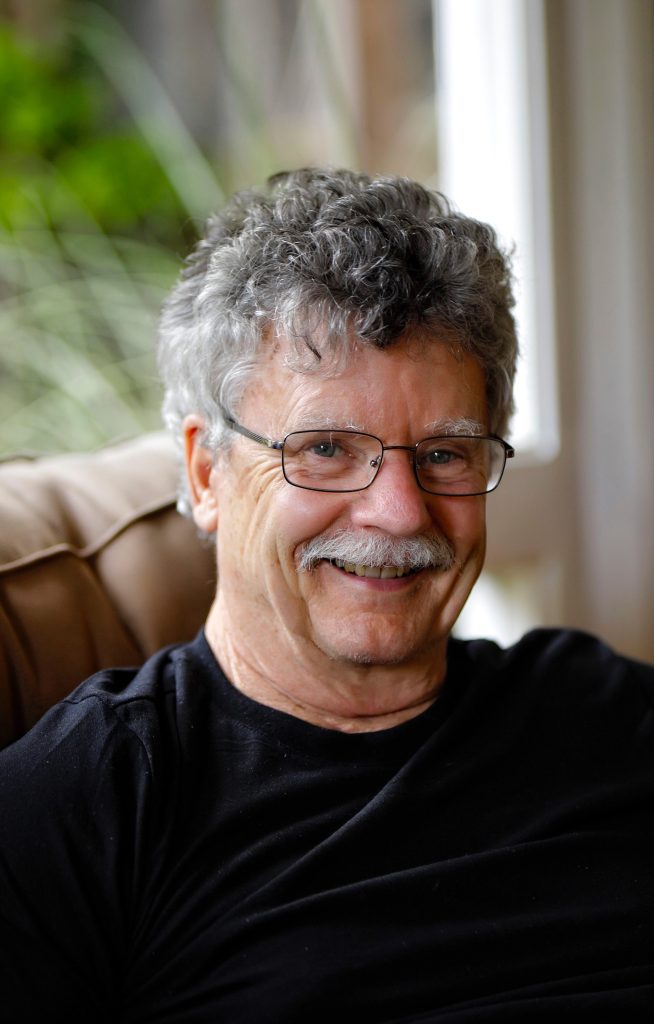
Stewart Cubley
For over four decades, Stewart Cubley has pioneered a way of creative exploration through the practice of process painting, an experience that emphasizes creative engagement rather than technique or expertise.
His method is one of respectful questioning, inviting you to extend yourself into new areas of feeling and perception. Stewart travels throughout the world, teaching his unique approach to thousands of people at personal growth centers such as the Esalen and Omega Institutes. He has brought his work to multinational corporations, programs in prisons, and countless other public forums.
Stewart is the co-author of Life, Paint & Passion, Reclaiming the Magic of Spontaneous Expression (Tarcher/Putnam). He lives in Portland, OR and spends part of the year on his homestead near Denali Park, Alaska. This collaboration with Dr. Denis Dumas in the NeuroArts Blueprint Initiative provides a unique platform to quantify the profound effects of spontaneous visual expression.
The Dancing Nurse: Designing an Integrative, NeuroArts Wellness Curriculum for Nursing Education
Lucy Graham and Tara Rynders
Colorado Mesa University“The Dancing Nurse,” led by Tara Rynders and Dr. Lucy Graham explores the impact of Neuroarts-based interventions (dance, play, and poetry) on nursing students’ well-being at Colorado Mesa University. This single-site study will involve 40 first-year BSN students and use a mixed-methods approach with a holistic Neuroarts intervention, comparing quantitative pre- and post-intervention surveys with qualitative data from open-ended questions. Interventions facilitated by The Art and Heart of Healthcare team are designed to reduce burnout, secondary traumatic stress, and feelings of isolation while fostering resilience, self-compassion, and a sense of belonging.
“The Dancing Nurse” will provide rigorous evidence for Neuroarts in nursing schools as a low-risk, high-reward intervention that can be integrated into a nursing curriculum to support student well-being and, ultimately, better patient care outcomes.
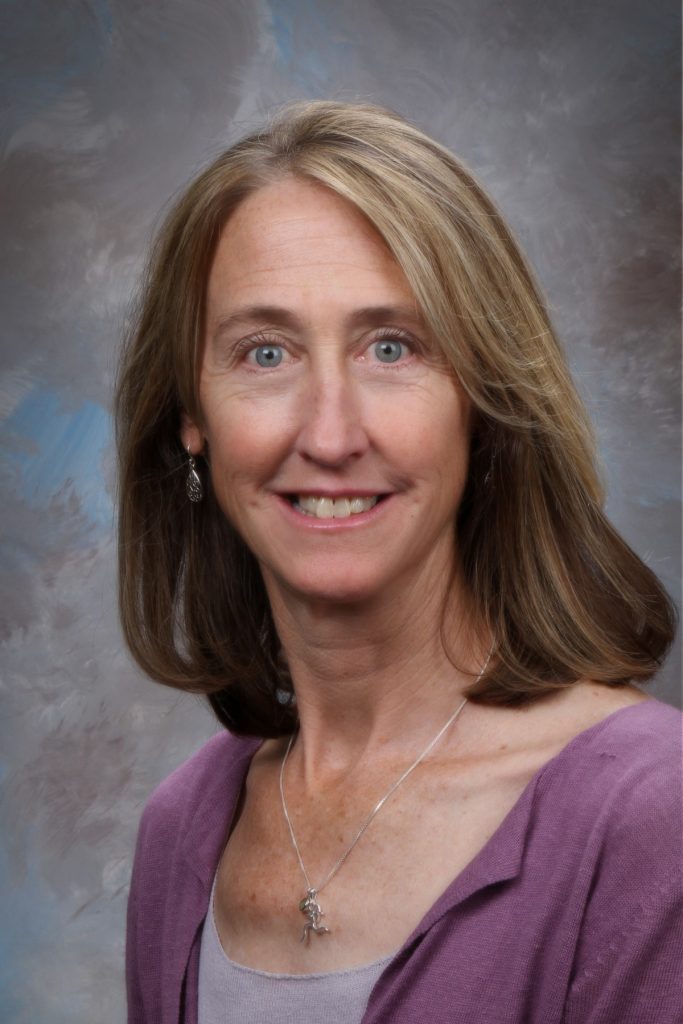
Lucy Graham
Lucy Graham PhD, MPH, RN has been a licensed registered nurse for 34 years and has clinical experience in critical care, emergency, HIV, and public health nursing.
She worked in an integrated nurse-led, federally-funded clinic for people living with HIV for 23 years serving a 22-county region of western Colorado. She completed her PhD in nursing science from the University of Colorado in 2016, studying predictors of viremic control for people living with HIV in rural areas.
Since 2016, Dr. Graham has worked at Colorado Mesa University in various academic positions teaching in both undergraduate and graduate nursing programs. She is currently an Associate Professor of Nursing and the Director of the Department of Health Sciences. Current research and projects focus on care for people experiencing homelessness, predictors of success for undergraduate nursing students, and academic-practice partnerships to support student learning.
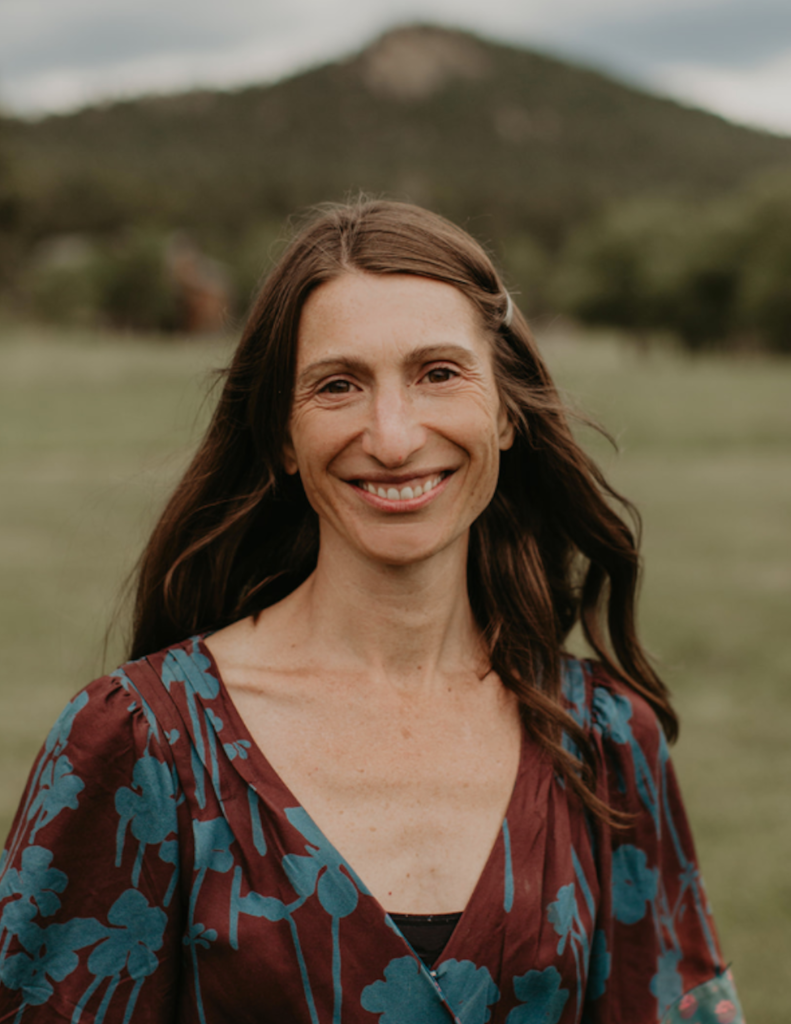
Tara Rynders
Tara Rynders, MFA, BSN, BA, RN is a keynote speaker, performer, and the Executive Director of The Art and Heart of Healthcare; offering interactive keynotes, arts-based coaching, and evidence - based (Re)Brilliancy workshops to healthcare systems across the nation, including Kaiser Permanente, HCA Healthone, and MD Anderson.
Rynders has been a registered nurse for over twenty years and received her MFA in Dance at CU Boulder. Rynders, an Advanced Certified Grief Recovery Specialist, is extremely honored to have been the recipient of: The Colorado Nightingale Luminary Award, The Oncology Nursing Foundation’s Mara Mogensen Flaherty Memorial Lecture Award, A Blade of Grass Fellowship, a Hamilton Award National Organization for Arts in Health (NOAH), and the EY Next Wave Leader Award. Most recently Rynders was named a Fulbright Specialist where she facilitated (Re)brilliancy workshops in the Netherlands and researched best practices in arts and health.
Giving Voice Rural Initiative Pilot Project
Patricia Izbicki and Eyleen Braaten
Florida Atlantic University (FAU)The Giving Voice Rural Initiative Pilot Research Project investigates the impact of community- based choral singing on individuals with Alzheimer’s Disease and Related Dementias (ADRD) and their care partners. This study aims to address key neuroarts research questions, including how structured musical engagement influences cognitive function, emotional well-being, and social connectivity in dementia care.
The project contributes to neuroarts by providing empirical evidence on the benefits of music-based interventions, reinforcing their significance in integrative healthcare. The study will employ a pre-post, single-arm design with mixed-methods assessments across 25 rural communities in Minnesota. Advancing equity in neuroarts, the project prioritizes accessibility by recruiting diverse participants from rural areas with limited dementia resources. Anticipated outcomes include improved well-being for ADRD individuals and caregivers, reduced caregiver burden, and evidence supporting the scalability of choral interventions. The findings will inform future research, policy integration, and funding opportunities to expand Giving Voice choirs nationwide.

Patricia Izbicki
Patricia Izbicki, PhD is a neuroscientist, classical pianist/harpsichordist, and forthcoming music therapist who harmonizes science and art to advance brain health across sectors of academia, industry, and non-profit.
Her work has been featured in journals such as Neuroscience Letters, Brain and Behavior, Psychomusicology, Contributions in Music Education, and Frontiers in Aging Neuroscience. Dr. Izbicki serves as an engagement manager at Mirada Life Sciences, leading national and international medical affairs and education initiatives in neurology, oncology, and precision medicine. She is an Assistant Professor of Medical Education at Florida Atlantic University's Charles E. Schmidt College of Medicine, a board member of Giving Voice Chorus, and a consultant for LUCID Therapeutics on Resonance Rx, an FDA-approved music intervention for older adults. Please visit patriciaizbickiphd.com for her full portfolio.
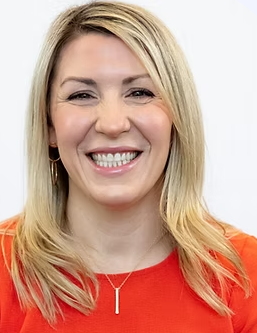
Eyleen Braaten
Eyleen Braaten, MPP joined Giving Voice in 2017 and has been instrumental in the growth of the organization. Since becoming Executive Director in 2021, Eyleen’s focus has been on creating unique and innovative opportunities to expand the Giving Voice mission across the world while keeping local choruses strong.
Eyleen believes that music is an expression of our humanity and connects us all. Eyleen’s vision is for all communities across the globe to have access to a Giving Voice Chorus. She has demonstrated expertise in strategy, networking, and collaboration. Before becoming Executive Director, she headed marketing and communications, launched programming for our local choruses, and created a global Learning Community of more than 40 Alzheimer’s choruses. Eyleen has a master’s degree in public policy from the University of Minnesota’s Humphrey Institute and a previous career in mediation. Eyleen’s favorite thing about Giving Voice is that “we are a family.”
Investigating the Brain Mechanisms of a Dance-Based Intervention in Parkinson’s Disease
Constantina Theofanopoulou and David Leventhal
The Rockefeller UniversityParkinson’s Disease (PD) is a progressive neurodegenerative disorder characterized by motor symptoms such as tremor, bradykinesia, rigidity, and speech deficits, as well as nonmotor symptoms like depression and anxiety. While dance-based interventions improve motor and cognitive function in people with Parkinson’s Disease (PwPD), the neural mechanisms behind these benefits remain underexplored. This pilot study addresses this gap by using functional Magnetic Resonance Imaging (fMRI) to examine brain activity in PwPD before and after a 12-week dance intervention, compared to a control group engaging in structured walking. The experimental group will attend weekly in-person dance classes led by Mark Morris Dance Group’s Dance for PD® instructors. Behavioral efficacy will be assessed via a comprehensive battery of motor, cognitive, speech, and psychosocial measures. This interdisciplinary study anticipates linking behavioral and neural changes resulting from dance versus walking, thereby providing a framework for studying arts-based therapies for brain disorders.
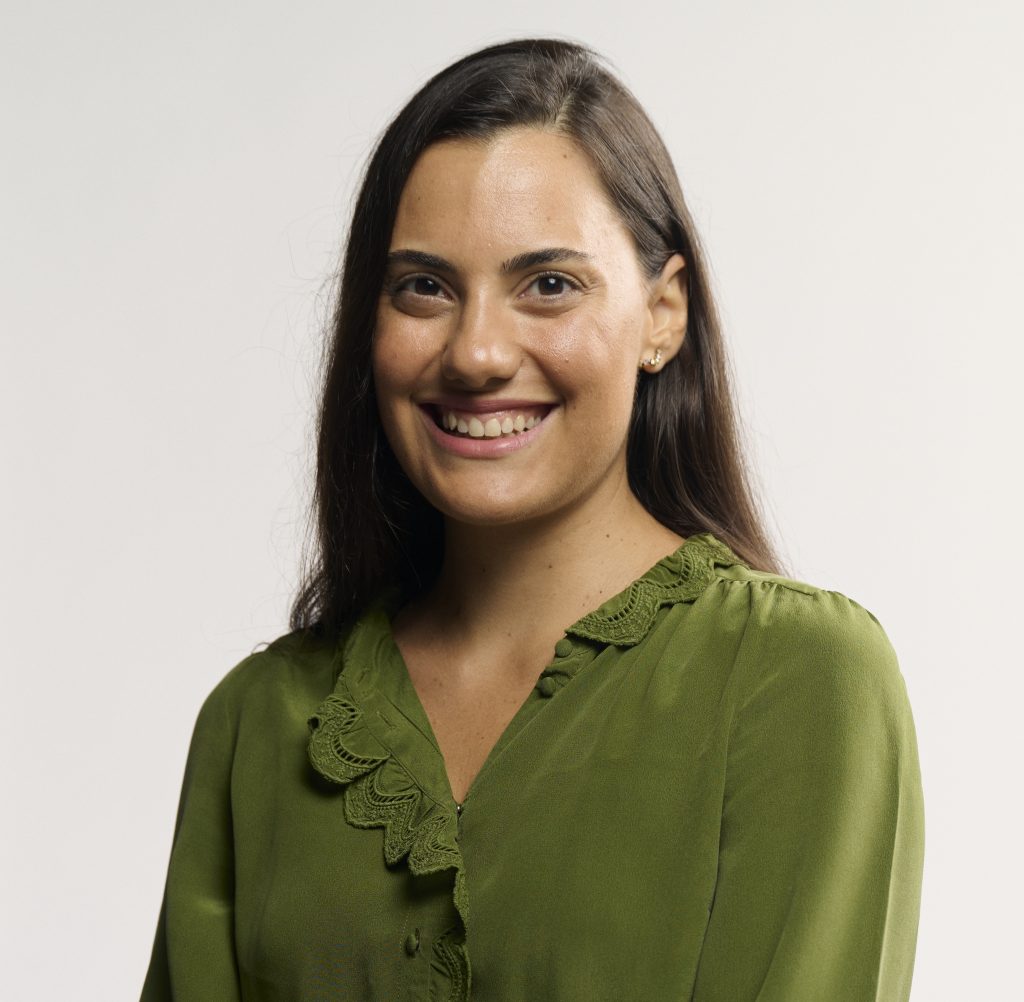
Constantina Theofanopoulou
Constantina Theofanopoulou, PhD is the Herbert and Nell Singer Research Assistant Professor at Rockefeller University, Research Associate at Emory University and the US Department of Veteran Affairs, and Visiting Scholar at the NYU’s Jameel Arts & Health Lab. Her research aims to understand the neurobiology of complex sensory-motor behaviors, specifically speech and dance, and to uncover effective drug and arts-based interventions for sensory-motor deficits commonly seen in brain disorders, such as Parkinson’s Disease.
Her work on the neurobiology of dance has gained global media attention (e.g., New York Times, Dance Magazine). She has earned over 20 scientific awards, including as a Next Generation Leader by the Allen Institute, and a Forbes 30 Under 30 honoree. Additionally, as a flamenco dancer, she has performed in numerous shows worldwide and has received the first flamenco prize by the Spanish Dance Society and a fellowship from NYU’s Center for Ballet and the Arts.
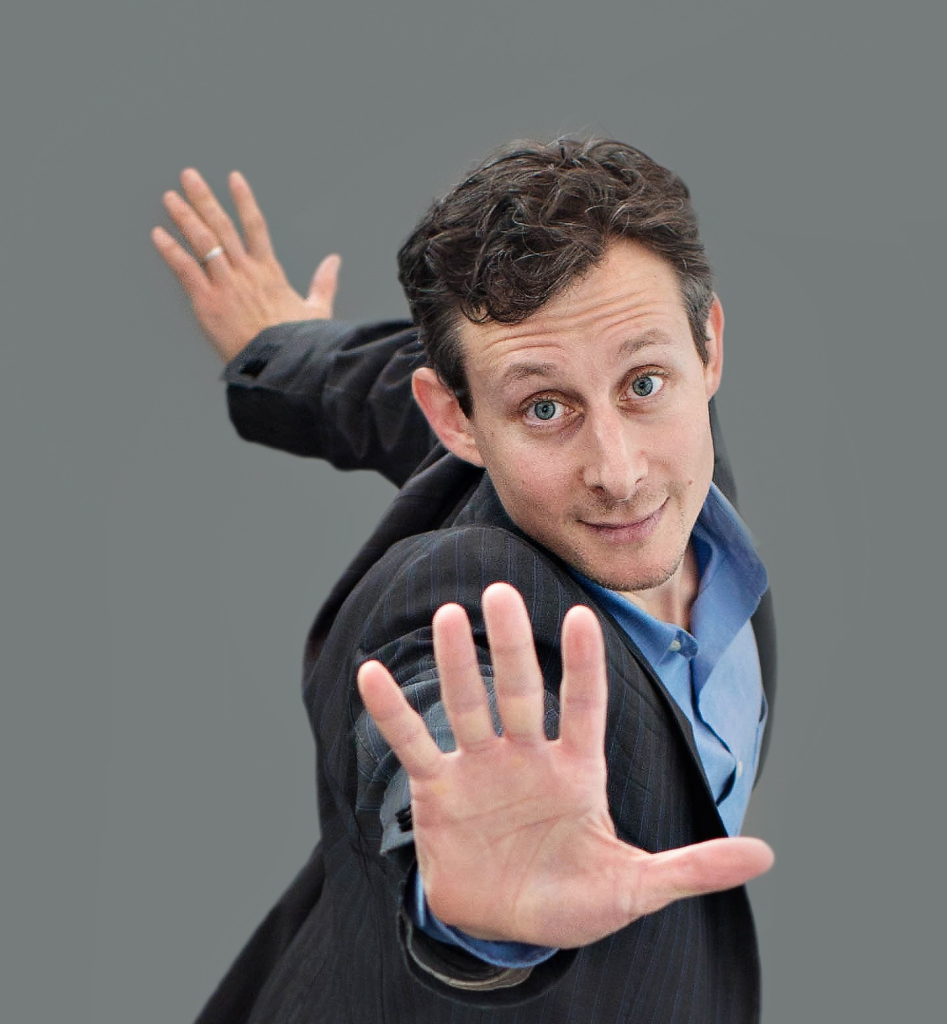
David Leventhal
David Leventhal is a dancer, teaching artist, and Program Director of the Mark Morris Dance Group’s Dance for PD® program.
Internationally recognized for advancing dance as a therapeutic tool for people with Parkinson’s Disease, he has trained and mentored more than 2,500 teaching artists in 30 countries, co-produced five volumes of instructional videos, and co-developed Moving Through Glass, a Google Glass-based prototype to assist with balance and gait. His honors include the Alan Bonander Humanitarian Award, Martha Hill Mid-Career Artist Award, IADMS Pioneer Dance Educator Award, and the 2016 World Parkinson Congress Award. He contributed chapters to four books, including Renée Fleming’s Music and Mind, and teaches a dance-based elective for first-year medical students at Columbia University. A former Mark Morris Dance Group company member (1997–2011), he received a Bessie Award for his performance career and graduated with honors from Brown University.
Classically Trained Singing and the Parkinson’s Brain
Giovanni Battistella and Kristin Norderval
Massachusetts Eye and Ear, Harvard UniversityParkinson’s disease (PD) affects motor and cognitive functions, including voice control, leading to changes in pitch, loudness, and articulation. While research has highlighted the positive impact of high-intensity physical therapy on symptoms such as posture, stiffness, and bradykinesia, no studies have examined the influence of extensive vocal training required for classical singing on voice-related symptom progression. To this end, our project will use functional Magnetic Resonance Imaging (MRI) to investigate the brain network organization associated with intensive voice training in classically trained singers with and without PD. Participants will perform structured singing tasks in the scanner to assess brain activity associated with articulation, breath control, passaggio negotiation, and vocal dynamics. MRI-compatible headphones will record singing during these tasks for correlation with brain activity. Findings will provide novel insights into brain reorganization in PD singers, laying the foundation for future research into vocal training’s potential neuroprotective effects.
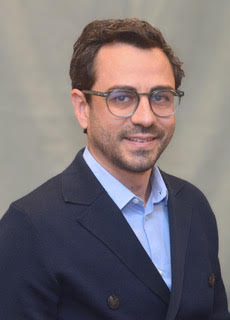
Giovanni Battistella
Giovanni Battistella, PhD is an Instructor of Otolaryngology-Head and Neck Surgery at Massachusetts Eye and Ear and Harvard Medical School.
He received his bachelor’s and master’s degrees in biomedical engineering from Politecnico di Torino and a doctorate in neuroscience from the University of Lausanne. The overarching goal of his research is to understand the neural basis of neurological voice and language disorders to provide better tools to diagnose, treat, and manage these conditions. To do so, he uses in vivo brain imaging techniques (Magnetic Resonance Imaging, Positron Emission Tomography, and Magnetoencephalography), advanced analytical methods investigating brain networks’ organization, and machine-learning tools. Additionally, he uses novel MRI protocols to enhance the spatial and temporal resolution of simultaneous image acquisitions of the brain and vocal tract structures during speaking. Dr. Battistella is honored to use his expertise to contribute to advancing the field of neuroarts.
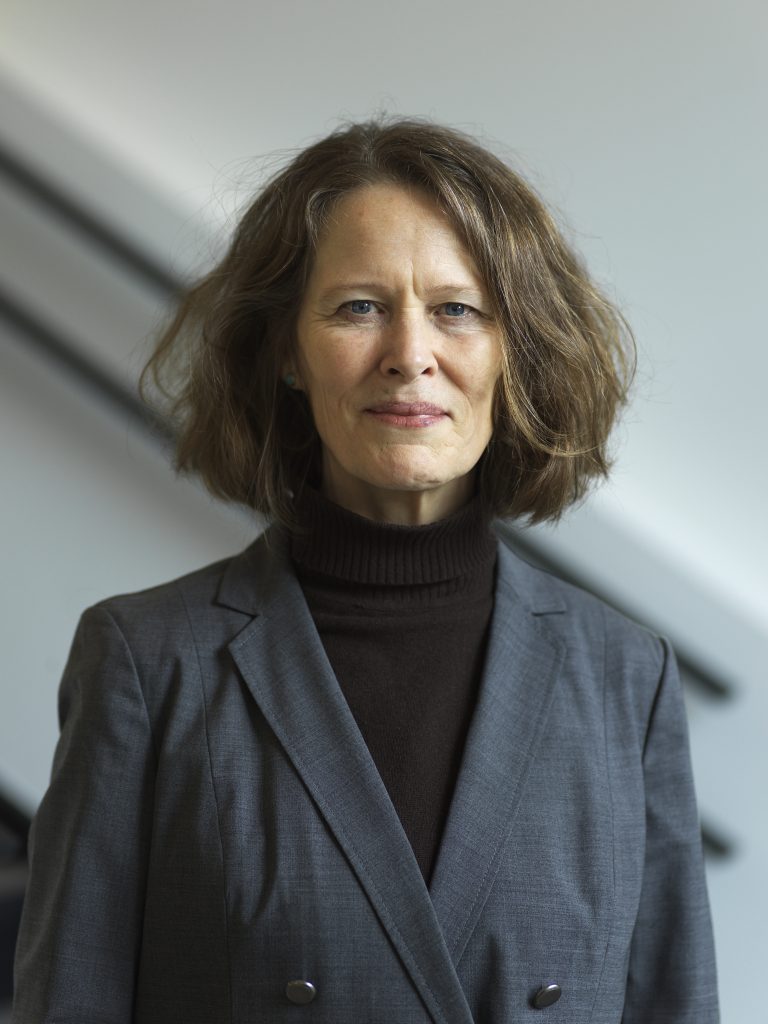
Kristin Norderval
Kristin Norderval, PhD, DMA is an accomplished American composer and vocalist known for her innovative approach to music, particularly contemporary vocal music and new media.
Her operas, chamber works, sound installations, and music for dance blend acoustic and electronic sounds, home-made instruments, voices, machines, and the acoustic resonance of space. Kristin´s solo album Aural Histories was named one of Ten Notable Classical Music Recordings of 2012 by The New Yorker music critic Alex Ross. Her opera The Trials of Patricia Isasa (2016) won Quebec´s OPUS prize for best contemporary music and best production. From 2019-2023 Kristin was a PhD Research Fellow at the Oslo National Academy of the Arts, where she developed the Expanded Vocal Improvising Instrument (EVII) for gestural audio processing. Kristin has used the EVII in solo performances, in her opera Crane Reflects on a Favor, in collaborations with other improvising musicians, and with choreographer and performance artist Jill Sigman.
Translating Music Therapy to Music Medicine for Greater Access and Impact
Daniel Bowling and Sarah Fogler
Stanford UniversityDepression and anxiety are rising sharply among youth (ages 12–29), yet existing treatments remain costly and often ineffective. Music-based interventions show strong clinical promise for this group—who are highly engaged with music and averse to medication—but access is limited by a shortage of trained music therapists. This project introduces a music-based digital therapeutic for guided self-administration with therapist support, integrating neuroscience and music therapy principles to make music treatment more accessible. We will assess the feasibility and efficacy of this approach in young adults with moderate-to-severe depression or anxiety symptoms using a crossover design, a “music-as-usual” control, and individualized music protocols tailored to each participant’s preferences and emotional needs. Outcomes include changes in PHQ-8 and GAD-7 scores, feasibility metrics, and qualitative user feedback. This work lays the foundation for a scalable, accessible, and personalized model of music therapy to help close critical gaps in mental health care.

Daniel Liu Bowling
Daniel Liu Bowling, PhD is a translational neuroscientist integrating music neuroscience, therapy, and technology to develop music-based treatments for disorders of mood, anxiety, and social connection.
His work is rooted in the biology of vocal behavior and its role in emotional regulation and communication. He earned a PhD in Neurobiology from Duke University for work on emotion and tonality before completing postdoctoral work at the University of Vienna on bioacoustics, rhythm, and synchrony. At Stanford Medicine, his work has focused on voice perception in autism and music-based digital-therapeutics for depression and anxiety.
A lifelong musician, he completed RCM Grades 1–9 in piano before moving to the U.S. Daniel’s research has been supported by the NIH, Austrian Science Fund, University of Vienna, and Wu Tsai Neurosciences Institute. He has published over 40 articles in journals including Science, PNAS, Molecular Psychiatry, and Translational Psychiatry, advancing a biological framework for music’s clinical applications.
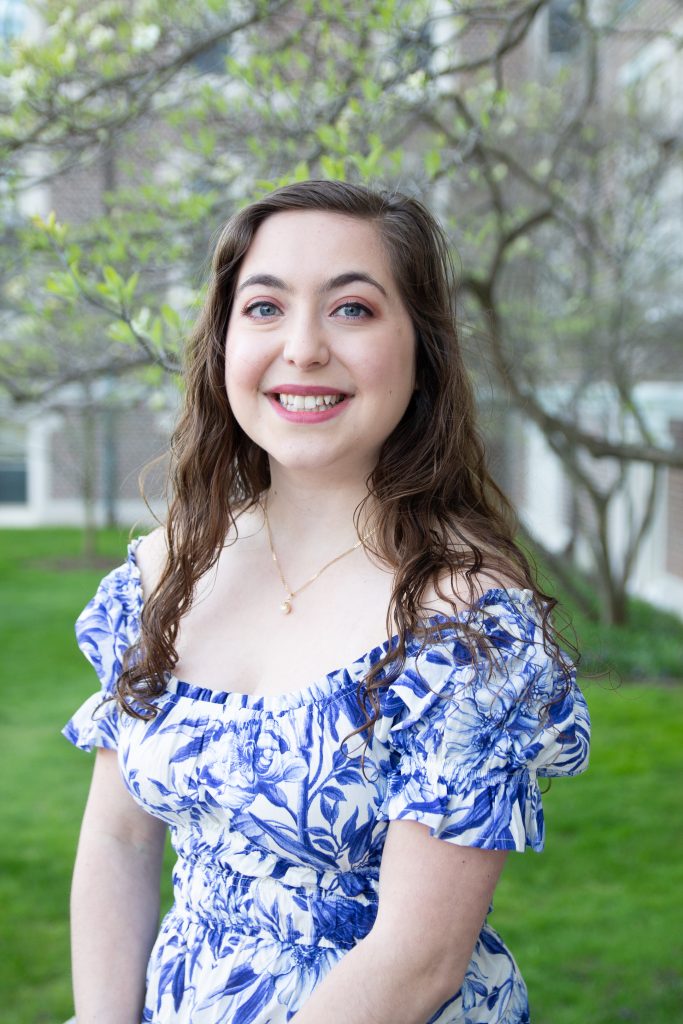
Sarah Fogler
Sarah Fogler, MS, MT-BC, LCAT-LP is a Board-Certified Music Therapist and a Licensed Creative Arts Therapist. She has clinical experience working in a variety of settings, including with older adults in rehabilitation and long-term care facilities as well as young adults with developmental and intellectual disabilities.
Sarah currently works as a music therapist at the Institute for Music and Neurologic Function (IMNF) where she completed her internship in June 2024. At IMNF, Sarah works to improve the quality of life of each individual she works with.
Alongside therapeutic work, Sarah is an active vocalist and hornist in her community. Having honed her skills at Nazareth University, she developed a passion for both vocal and instrumental performance. Sarah holds a Master of Science in Music Therapy from the State University of New York at New Paltz. Her research, Music-Based Stress Management for College Music Students: Research Protocol, investigates the impact of guided music experiences on reducing academic stress among college music majors. Recognizing the demanding nature of music programs, her study explores how accessible online music therapy experiences can serve as a reflexive self-care tool to address academic stress as it relates to anxiety, depression, and burnout, which are common among music students.
Harmonizing Brains: Music as a Tool to Reduce Neural Polarization
Akila Kadambi and Anne Preven
University of California, Los AngelesMusic is often described as a universal language that unites people across divides. Yet, preferences and taste shape how people experience music, which may reflect as unique neural signatures. Here we investigate the phenomenon of ‘neural polarization’ in music—whether shared genre preferences enhance similar neural responses (synchrony) compared to differing tastes. Understanding this phenomenon could provide key insights into how music fosters connection and whether shared preferences amplify its unifying effects.
Using functional neuroimaging, we a) investigate whether musical preference and familiarity produce more synchronized neural responses, and b) examine whether polarized neural responses can ultimately become more aligned. In doing so, our proposal will use music as a tool to uncover the neural correlates of unity. Our interdisciplinary team includes Anne Preven, an award-winning songwriter and record producer (known for writing global hits like the song Torn) and neuroscientists, Drs Akila Kadambi and Marco Iacoboni.

Akila Kadambi
Akila Kadambi, PhD is a postdoctoral researcher jointly appointed in the Department of Psychiatry and Biobehavioral Sciences at UCLA and the Brain and Creativity Institute at USC.
Combining interdisciplinary methodologies (behavior, functional neuroimaging, and brain stimulation), her research examines the neural mechanisms for empathy and self-processing, with a focus on how these processes are shaped by expressive modalities such as body movements, narratives, and music. She has authored multiple peer-reviewed publications and leads projects with support from the Dana Foundation, UCLA Institute to Study Hate, Google Research, Sanford Institute, UCLA Racial and Social Justice Initiative, and Templeton World Charity Foundation. She was the recipient of UCLA’s Best Dissertation Department Area Award and a fellow of the UCLA-CDU Dana Center, Summer Seminar in Neuroscience and Philosophy at Duke University, and Diverse Intelligences at the University of St. Andrews. She also helps direct mentorship programs for former foster youth and has consulted with the California Civil Rights Department.

Anne Preven
Anne Preven is an award-winning songwriter, publisher and record producer. She has written songs for Beyoncé, Miley Cyrus, Madonna, Sinéad O’Connor, Katy Perry, Natalie Imbruglia, Zac Brown Band, Sarah McLachlan and Demi Lovato among others.
In addition to her collaborations with artists from a variety of musical genres, she has written and produced for film, television and stage garnering Academy Award, Golden Globe, Critics Choice and Grammy nominations along the way. Anne also co-founded powerhouse music publishing company Pulse Music Group.
Anne has always been interested in neuroscience and the arts. The daughter of a psychiatrist and trained as a classical violinist, she graduated from Harvard University where she majored in Neuropsychology and directed a co-ed a cappella group. Her senior thesis “The Effect of Amygdalectomy on Crossmodal Associations in Humans,” a study conducted at MIT’s Clinical Research Center under the direction of Suzanne Corkin, was awarded The Hoopes Prize.
Social Motor Synchrony in Nordoff-Robbins Music Therapy: Identifying Benefits for Social Communication among Autistic Children
Pablo Ripolles and Anna Palumbo
New York UniversityAutistic individuals often show reduced social motor synchrony (SMS)—the alignment of body movements during interaction—which contributes to challenges in social communication. Music therapy may improve both SMS and communication, yet the mechanistic link remains unexplored. This study investigates whether Nordoff-Robbins Music Therapy, which uses improvisation to facilitate music engagement, enhances SMS and social communication in autistic children. Twenty children will participate in a 15-week intervention. Using wearable accelerometry devices, we will continuously track therapist-child movement synchrony as a measure of SMS via Granger causality analysis. Social communication will be measured before and after the intervention using the Autism Impact Measure. We hypothesize that increased SMS over time will correlate with improved communication skills. By identifying a mechanistic relationship between SMS and social outcomes, this project will inform scalable, evidence-based music interventions, and will build a foundation for broader access to effective, personalized autism interventions.
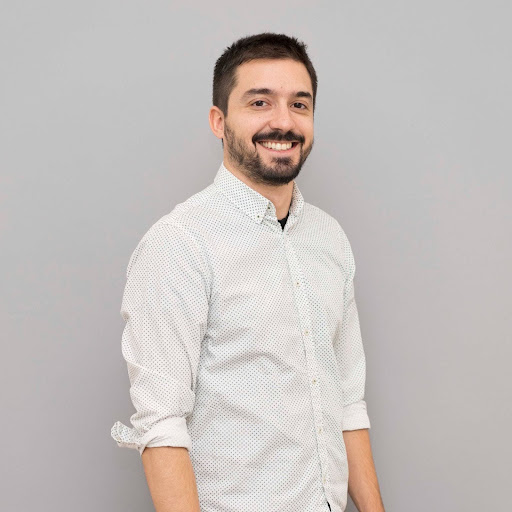
Pablo Ripollés
Pablo Ripollés, PhD is an Assistant Professor of Psychology and Music Technology at New York University (NYU), where he leads the Ripollés Lab. Ripollés serves as the Associate Director of NYU’s Music and Audio Research Laboratory (MARL), an interdisciplinary research center at the intersection of machine learning, cognitive neuroscience, and music technology.
His research is inherently interdisciplinary and focuses on building bridges between different fields of the cognitive neurosciences— especially reward and memory—and other areas of study, including music, language, and technology. Pablo’s work also goes beyond basic research and includes applied scientific studies that capitalize on music to improve human health and well-being. He has received funding from federal agencies including the NSF and NIH, as well as industry partners and private foundations.

Anna Palumbo
Anna Palumbo, LCAT, MT-BC is a music therapist completing a PhD in rehabilitation sciences at New York University in May 2025. Her research investigates behavioral and neurophysiological correlates of music interventions, focusing on social, emotional, and functional outcomes.
Her work includes clinical trials demonstrating the benefits of music therapy for improving motor recovery, emotional well-being, and the neural environment for recovery post-stroke. In mechanistic studies, her work demonstrates the benefit of music improvisation and live accompaniment for increasing reward and motor responses, which play important roles in music therapy engagement. Her qualitative research describes the psychosocial processes leading to improved self-perception among survivors of stroke in a music therapy group. Her research is supported by a Predoctoral Fellowship from the National Institute of Neurological Disorders and Stroke (NINDS), the National Institutes of Health (NIH).
